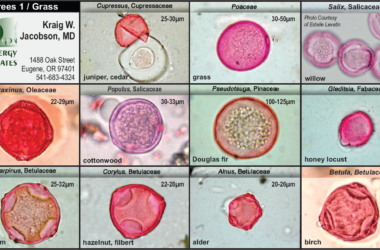 File photo
File photo
Let’s face it, having pets in our household brings us joy and enhances our health and well-being, and there are plenty of potential furry family members out there waiting to find their forever homes.
When making the important decision to adopt a dog or cat, we all need to think about this big responsibility we are taking on. Are we ready to take care of this addition to our household, keep them safe and healthy? Do we have the time to train and play with them?
A favorite resource that I’ve shared in my columns over the years is The Environmental Working Group, a great organization to look to for healthier choices. On their website, they offer many tips for taking care of pets, and I will share some of them in today’s column.
• Choose pet foods without commonly used chemical preservatives such as BHA, BHT, and ethoxyquin. Avoid exposure to mercury in seafood, often high in tuna based pet foods. When possible choose free range and Organic ingredients. Just like your two legged family members, our pets are what they eat.
• Have filtered water available inside and outside, and clean their water bowls often.
• If you have pet beds stuffed with foam, replace the foam regularly, to avoid exposure to crumbling foam.
• Use a vacuum with a HEPA (High Efficiency Particulate Air) filter when you regularly vacuum, which offers a cleaner environment for you and your pets.
• Many of our outdoor decks are made with arsenic treated wood, which can affect your pets’ health. Apply sealant twice a year, and don’t let your pets play or sleep on these structures.
• There are hidden hazards in those convenient non-stick pans. When overheated the vapors from non-stick pans can kill your pet birds and can impact us and our other pets as well. Think canary in the coal mine.
• Use kitty litter that is natural and compostable. Clay litter is produced by strip-mining causing much environmental damage. Popular choices are the wheat based litters available in pet supply stores. In our household, we use wood pellets (comes in 50 pound bags) that are inexpensive, effective and biodegradable.
• You can almost always tell that someone is a dog owner – when they reach into their coat pocket for something, a poop bag will often tumble out. Responsible dog owners clean up and dispose of their dog’s poop. Use biodegradable/compostable bags whenever possible.
• Most of the flea collars available are ineffective, and they can be a source of toxic exposure for your pets. As an alternative, vacuum often, bathe your pets regularly and ask your veterinarian or pet supply store for healthier options.
• Producers of pet grooming products are not required to include ingredients on their labels but many do. Some ingredients to avoid are those products that include the terms parabens, -eth, urea, and fragrance on their labels.
• Your yard is your pets’ playground and often a favorite place to nap. Take care of your lawn without using nervous system damaging insecticides – your pets nibble on, sniff, lay and play on the grass and will be exposed through their feet and skin.
• Next time you purchase carpets, furniture, or a vehicle don’t have them include the optional stain proofing treatments. They are loaded with toxic perfluorochemicals.
I hope these tips will be helpful for your families and also help you decide if this is truly the right time to adopt. In future columns we will explore other aspects of pet ownership, training, healthy dietary choices – how to truly Love Your Pets.
Let me know if you have any questions and/or any suggestions for pet related topics you’d like to see covered in these pages. I can be reached at: [email protected] .







